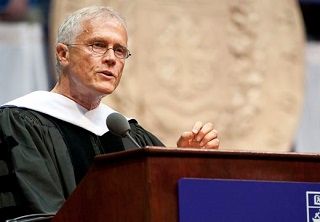The Bioneers Host a Talk by Paul Hawken

Our civilization has taught us that we need to win, to take: to get rich, to be liked, to be powerful, to satiate ourselves with the fruits and the wealth of the world around us. (more…)

Our civilization has taught us that we need to win, to take: to get rich, to be liked, to be powerful, to satiate ourselves with the fruits and the wealth of the world around us. (more…)

You won’t need to throw as much food as you usually do if you follow these simple tips: (more…)

I’m curious to understand their strategy re: hydrogen. If I were able to speak with them, I would ask: Why hydrogen? Aren’t they concerned about the lack of delivery infrastructure? Why are they not dedicating themselves to battery electrics? Would they have a stake in the hydrogen generation process? The delivery infrastructure? What have they learned from Honda’s extensive experience in the field? They seem to be going in the opposite direction as Honda. Why?
The reader responds:
I disagree with your saying that hydrogen isn’t the way of the future, since it’s the most abundant and powerful fuel in the universe. Now, the challenge is to find new ways of obtaining it, different from the reformation of hydrocarbons, maybe optimizing electrolysis.
I reply: Well, here’s the problem: hydrogen isn’t really a fuel, any more than electricity is a fuel; rather, it’s a carrier of energy. It’s true that it’s abundant in the universe, but not on Earth, in its elemental form, at least. As you pointed out, it needs to be made – and in ways that are fairly inefficient; the best electrolyzers are about 60% efficient, and they’re (currently, anyway) quite expensive.
As I implied above, the other, and larger, issue with hydrogen is the delivery infrastructure. Our land mass in the continental U.S. is about 3.5 million square miles, and retrofitting that for hydrogen would be a horrendously expensive proposition. Contrast that to electricity, which is ubiquitous.




They write: (more…)

I agree that the U.S. looks woefully unprepared to compete effectively and prosper in the 21st Century, due to the confluence of many factors: (more…)

Perhaps this is further evidence that it’s finally time, after more than a century of experience with the regulation of electric power utilities, for us to (more…)
